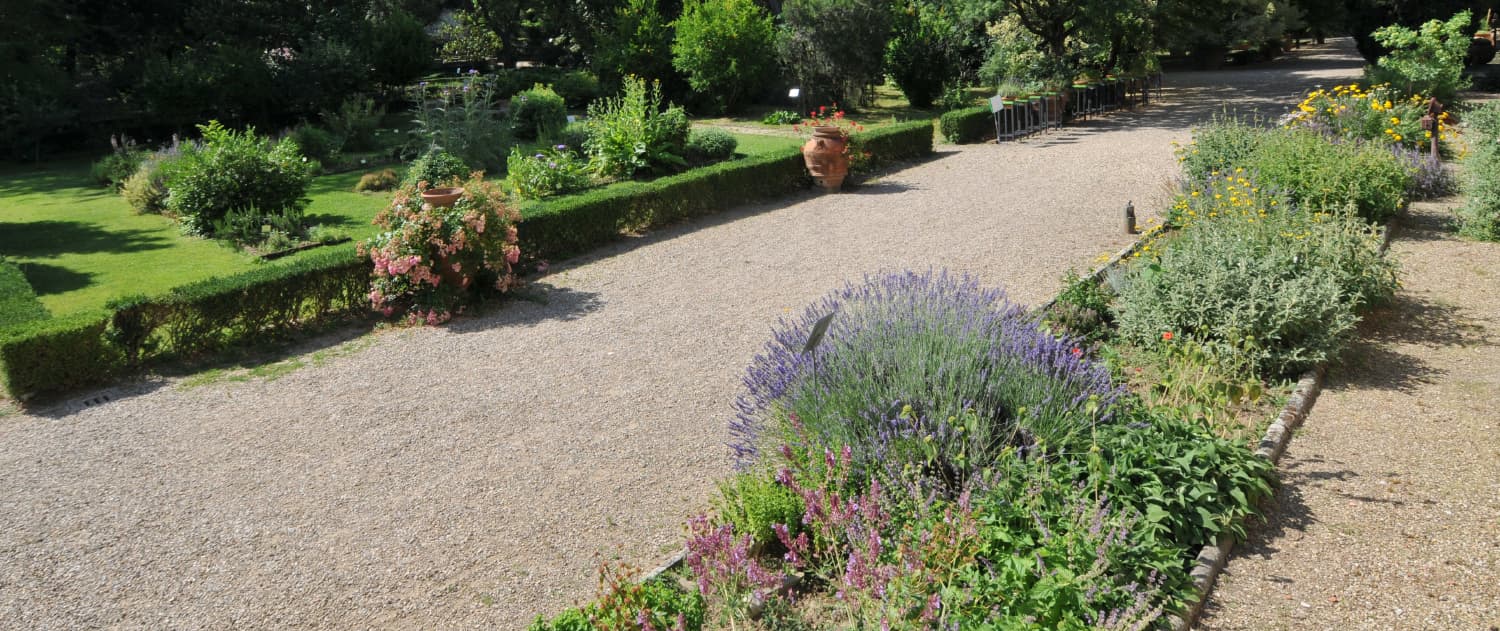Botanical Garden of Florence
Medicinals
All collections
Introduction | Acquatic | Citrus fruits | Trees | Wild edible plants | Araceae family | Wild shrubs | Begonias | Bromeliads | Carnivorous | Cycads | Grasses | Medicinals | Tropical orchids | Palms | Pteridophytes | Roses | Serpentinophytes | Succulent plants | Exhibits
The collection counts about 200 specimens belonging to species with an extremely heterogeneous geographical distribution.
Medicines call to mind what was the origin of the "Giardino dei Semplici" in Florence, a place where doctors and apothecaries could devote themselves to the knowledge of medicinal plants, from which so-called "simple medicaments" could be extracted. In the modern Botanical Garden, the collection aims to show the fundamental role that plants continue to play in human health: as factories of molecules, plants are still constantly being investigated in order to discover useful remedies against diseases.
Five flowerbeds along the border with La Pira street and a portion of the Warm Greenhouse are currently dedicated to medicinal species. The collection hosts both spontaneous species, many of them still used in Tuscan folk medicine, and species used in oriental medicine. There are also many different tropical species used in traditional medicines as well as in a huge numer of modern pharmaceutical and cosmetic preparations as, for example, jojoba (Simmondsia chinensis). This group, along with several toxic species of tropical origin such as coca (Erythroxylum coca) and nux vomica (Strychnos nux-vomica), is grown in pots and is sheltered inside the Warm Greenhouse in winter. A flower bed dedicated to medicinal species used by St. Hildegard, a writer, theologian, music composer, naturalist and expert phytotherapist who lived in Germany in the 12th century, completes the collection.
A yellow tag identifies specimens belonging to the collection, whether they are grown in pots or in the ground.
The collection has been the subject of several research and dissemination activities in the recent past, as the screening of Italian toxic species carried out together with the Poison Control Center of the University Hospital of Careggi and the work on allergenic plants carried out together with the Laboratory of Allergological Immunology of the new San Giovanni di Dio Hospital in Florence.

